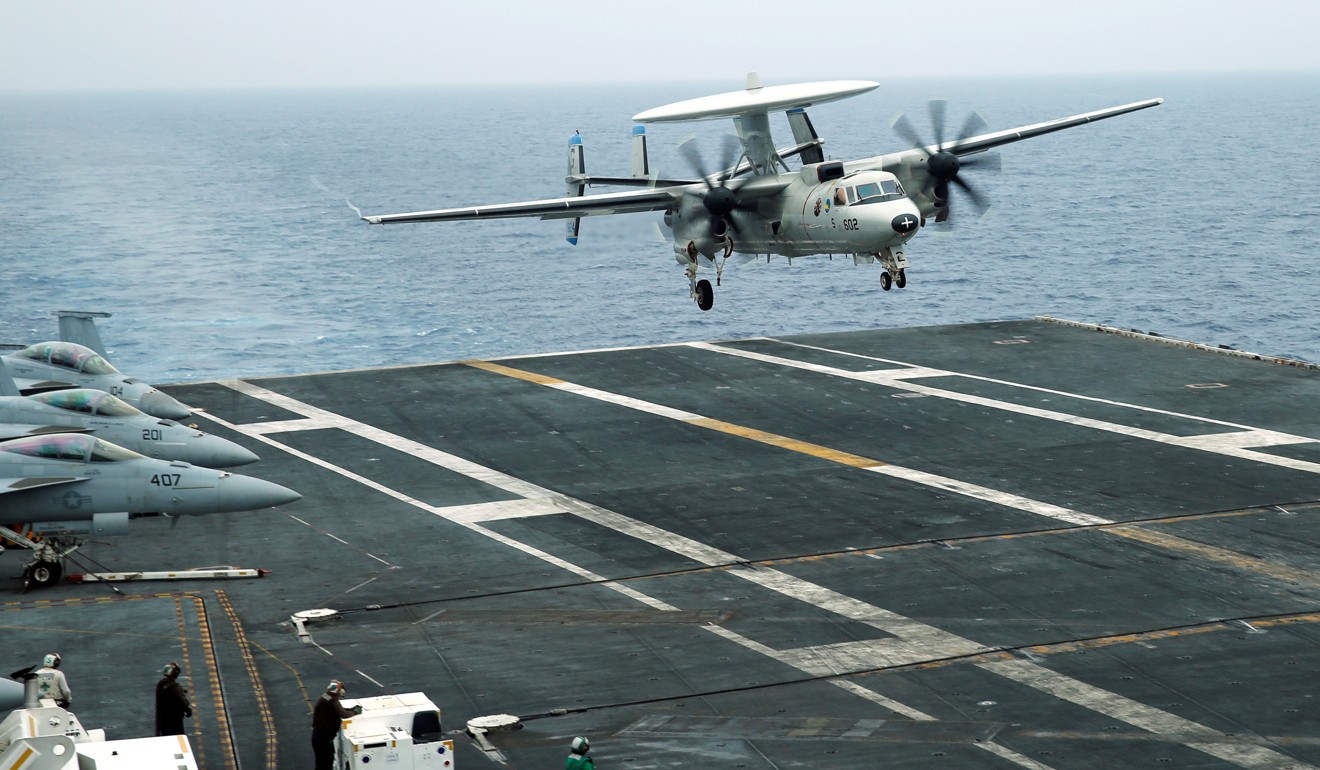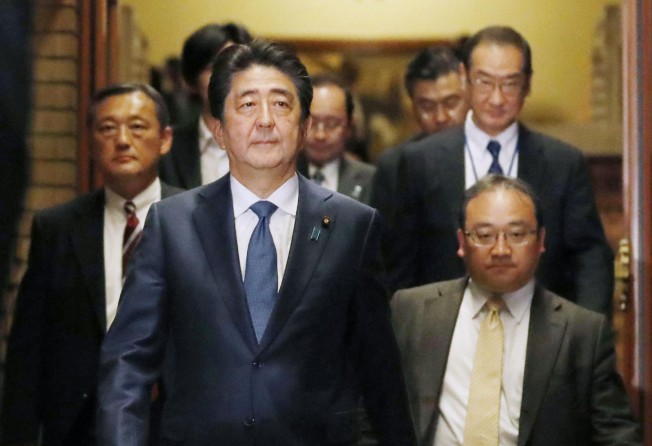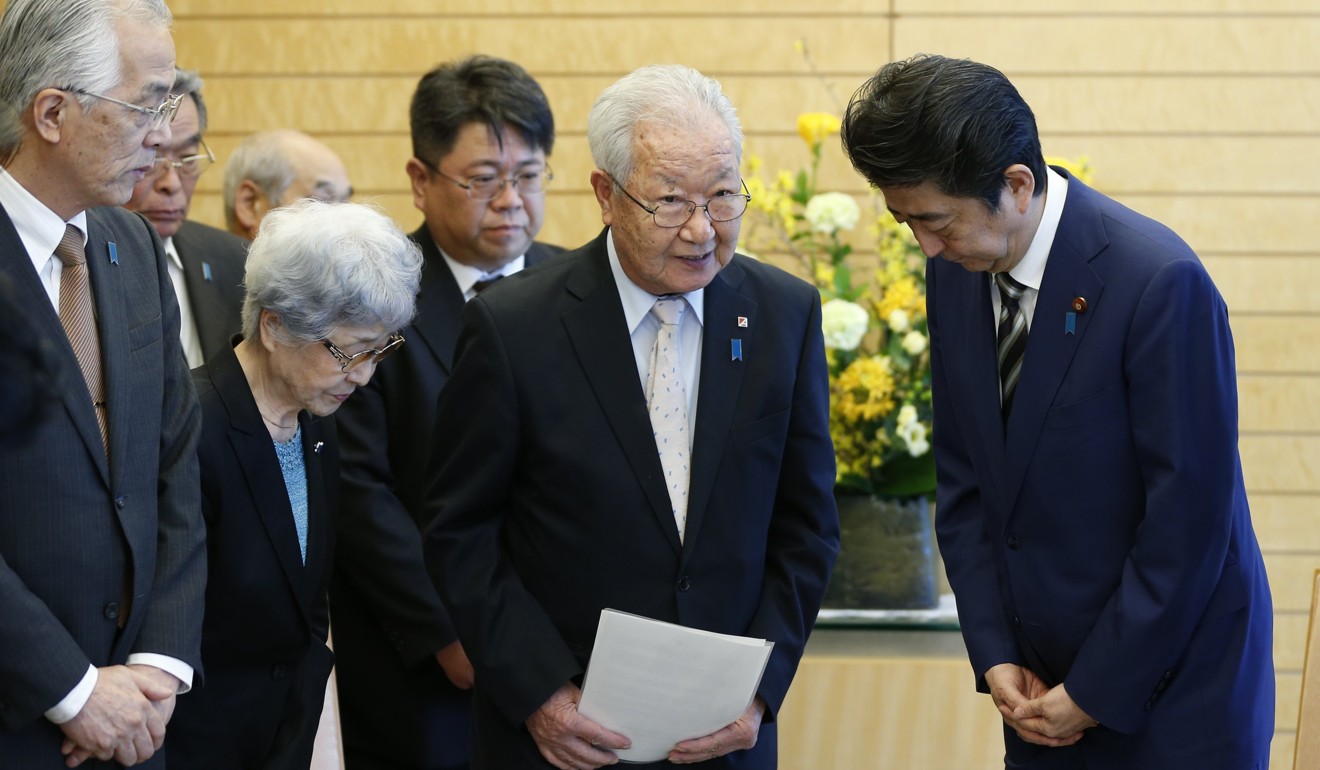
Donald Trump will put his country first in North Korea talks, and Shinzo Abe should too
Anthony Rowley says the Kim regime’s talks with other countries have left the Japanese prime minister, who has stressed the North Korean security threat, in an awkward position and he may need to conduct a more independent foreign policy

North Korean leader Kim Jong-un has managed to shed some of his image as a "mad dictator" and emerge as a man with whom US President Donald Trump can “do business", while China's President Xi Jinping is seen by some as "statesmanlike" on issues such as global trade. This is reassuring for the world at large but not for Japanese Prime Minister Shinzo Abe's administration.
Apart from feeling rather left out of all the recent shuttle diplomacy among Pyongyang, Seoul, Washington and Beijing, Abe is in danger of seeing two of Japan's purported "enemies" (North Korea and China) reduced to the status of paper tigers. There is a distinct danger of peace breaking out on and beyond the Korean peninsula.
For a number of years since he came to power in 2012 (after a brief earlier stint in office), Abe has been pushing for a revision of Japan' s post-war “peace” constitution, one that would allow the country's so-called Self-Defence Forces a more active role overseas.
At the same time, Japan's annual Defence White Paper has emphasised the perceived need for the country to continue strengthening its armed forces and security alliances, not only with the United States (with which Japan has a formal mutual security treaty) but also with Australia and India, among others.

The white papers have made increasingly explicit references to the "threat" from both North Korea and China, citing Kim's former propensity for firing missiles in Japan's direction (though not actually at Japan) and to China' s incursive maritime activities in the South China Sea and other seas in the East Asian region.
If not exactly "bogeyman-creating" tactics, these repeated references have served to create a climate of uncertainty and even fear among Japanese voters. They have continued to rally behind Abe's governing Liberal Democratic Party in the belief that only a strong and resolute government could shield Japan from growing external threats.
But with international perceptions of Kim softening somewhat (not least on Trump's part) and with Xi looking like a model of stability and moderation compared to the US president, it could become increasingly difficult for Abe to justify his extreme hawkishness.
Already, his demands for total and verifiable denuclearisation of North Korea and for maximum international sanctions to be maintained against Pyongyang until it yields to such demands are beginning to sound rather shrill and out of tune with the more flexible stance of the US, China and South Korea.
Abe has yet to join in the growing dance of bilateral summits between the leader of North Korea and those of South Korea, China – and soon (unless the event is cancelled again) between Kim and Trump. Until such time as Kim puts Abe on his dance list, the Japanese leader is forced to do a pas de deux with others.
Those others may not take too kindly to Abe's continuing insistence that they take an uncompromising hard line on North Korea, and also that they act as messengers in delivering Abe's message to Kim that an essential part of any deal with Pyongyang should be the return of Japanese abductees.

Japan does have some grounds for concern over the possibility of Trump “going soft” on North Korea or of his being “duped” by a cunning Kim. Some in Tokyo also fear that a deal-oriented US president could get the North Korean leader to scrap longer-range missiles allegedly capable of reaching the US but that Kim might hang on to shorter-range weapons that could hit Japan.
But Trump has made no secret of his intention to put "America first" in whatever he does, and that presumably applies as much to any foreign policy deal he signs as it does to any trade agreement. Ultimately, Japan will have to take care of its own interests.
In this regard, some of Abe's critics (and he has those within his own party, as well as the political opposition) feel that he would be better advised to examine options that would see Japan putting more emphasis on its own diplomacy rather than demanding that others do its bidding.
Anthony Rowley is a veteran journalist specialising in Asian economic and financial affairs